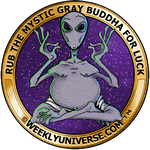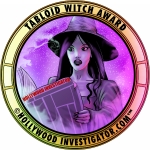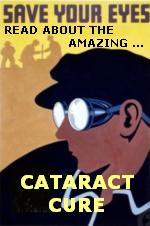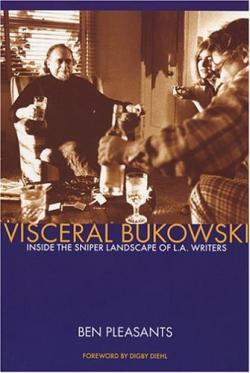|
Home
About
Us
Bookstore
Links
Merchandise
Forum
Guest
Book
Blog
Archive
Books
Cinema
Fine Arts
Horror
Media & Copyright
Music
Public Square
Television
Theater
War & Peace
Affilates
Horror Film Aesthetics
Horror Film Festivals
Horror Film Reviews
Tabloid Witch Awards
Weekly Universe
Archives






|
BEN PLEASANTS'S VISCERAL BUKOWSKI
by Digby Diehl. [November 17,
2004]
 [HollywoodInvestigator.com]
Ben Pleasants and I both came to UCLA in the fall of 1964. He, two
years out of Hofstra in New York; I, two years out of Rutgers in New Jersey. As young men who shared a passion for writing and the arts, we met through
the campus newspaper’s arts section, Intro. Established six
years
earlier, the weekly supplement was a remarkable hotbed of talent, which
included writers Laurence
Goldstein, Larry
Dietz, Burt
Prelutsky, Joel
Siegel, Norman Hartweg, Harry
Shearer, Lewis
Segal, and artist Hank
Hinton. [HollywoodInvestigator.com]
Ben Pleasants and I both came to UCLA in the fall of 1964. He, two
years out of Hofstra in New York; I, two years out of Rutgers in New Jersey. As young men who shared a passion for writing and the arts, we met through
the campus newspaper’s arts section, Intro. Established six
years
earlier, the weekly supplement was a remarkable hotbed of talent, which
included writers Laurence
Goldstein, Larry
Dietz, Burt
Prelutsky, Joel
Siegel, Norman Hartweg, Harry
Shearer, Lewis
Segal, and artist Hank
Hinton.
Ben and I shared many parallels in our careers: we both
were involved with UCLA campus publications that caused censorship scandals;
we both wrote theater reviews as stringers for the Los
Angeles Times; we both were energetic contributors to the Los Angeles
Free Press; and, although our careers have diverged, we both have continued
to write throughout our lives.
In Visceral
Bukowski, Ben begins by evoking memories of Los Angeles in the 1960s
with a vividness and joyous abandon that sweeps me back into an era I recall
with considerable happiness. His descriptions of Westwood, the political
energy, the libraries, the Daily
Bruin,
and the campus in general are wonderfully evocative, as are his delightfully
candid memories of youthful love affairs.
When we began as stringers
for the Times, it was very much a
writer’s newspaper, and the freedom allowed even to young non-staff contributors
was considerable. Under publisher Otis Chandler’s watchful eye, the Times nurtured good writing, and
some true giants of journalism -- including Jack Smith, Jim Murray, Robert
Kirsch, and Charles Champlin -- taught by example in every edition.
Ben generously credits me
with being the first book editor to run his reviews of Charles Bukowski,
and I am sure he is correct, if only because I know that my predecessor
and
mentor at the Times, Robert Kirsch,
disliked Bukowski’s writing. What Ben may not have known until he
read these words is that I shared Kirsch’s view. My support of Ben
and of his Bukowski reviews did not emerge from any liberal sentiments
or spirit of friendship. They emerged from two precepts I developed
early in my editorship.
First, as I regularly read
reviews from publications all over the country, I was appalled to see that
then -- as now -- the great majority of book editors and book reviewers focused
almost exclusively on that great Mecca of book publishing, New York City. In those days, the Los Angeles Times was the most important journalistic voice of the West and I determined
that its book section should be a voice for the literature of the West. It seemed only reasonable that local authors could expect a review (not
necessarily a positive review) in their hometown newspaper.
Second,
I learned from some of my own Times editors – including Jim Bellows, Jean Sharley Taylor, and Charles Champlin -- that an editor does not have to agree with all of his or her writers. An editor has to have confidence in a writer’s ability to argue the merits
of a point-of-view with skill and intelligence. I had confidence
in Ben, and he never disappointed me.

This remarkable dual memoir
does not disappoint either. The "Beverly Hills Anarchist" (Ben) and
the "Dirty Old Man" (Buk) both come to life through a series of rambling
conversations, comic adventures, and stories that are insightful and entertaining. Ben decided to be Bukowski’s official biographer early in their friendship,
and Bukowski opened up his life to Ben with typical raucous candor. With equal openness, Ben reports their long nights of smoking cigars, drinking
and trading stories about writers for
stories about women.
Despite numerous comical
refusals from Bukowski’s ex-wives, old girlfriends, and former companions,
Ben persisted in locating people who knew Buk in most phases of his life. Here is Ben’s description: "…Whenever he sent me to interview a friend
it always ended up the same way – either he owed them money or he’d smashed
up all their furniture or he’d peed on their sofa, or he slept with the
wife or girlfriend."
I was fascinated by Ben’s
techniques of interviewing people Bukowski had offended and by his tenacity
in pursuing every possible biographical lead. The sexism, Nazism,
the drunkenness, the cruelties – it is all here, unflinchingly described
-- but always with sympathy for the man. As their unlikely friendship
unfolds in these pages, Ben is frank about why he is attracted to Buk’s
sense of freedom, his reckless audacity, his refusal to take the safe or
easy route. You may be shocked or disgusted by some passages, but
you definitely come away knowing Bukowski, in all his glory.
On the other hand, Ben has
always had a professorial look, a gentlemanly manner that makes the radicalism
of his thinking particularly amazing. He portrays himself in this
book with the same forthright assessments as he portrays his biographical
subject.
Perhaps all biographers should be this open, because his
admiration for Buk is infectious. In the end, Ben has done more than
a Boswellian job. He has told the intertwined stories of two different
men’s lives effectively and engagingly. Moreover, he has made Bukowski
and Bukowski’s bizarre philosophy of life come alive so vividly that these
revelations may illuminate the man’s work.
If, after finishing Visceral
Bukowski, each reader is prepared -- as I am -- to reread Bukowski’s
work with a fresh understanding, then Ben, Buk’s friend and literary biographer,
has done his job well.

|
